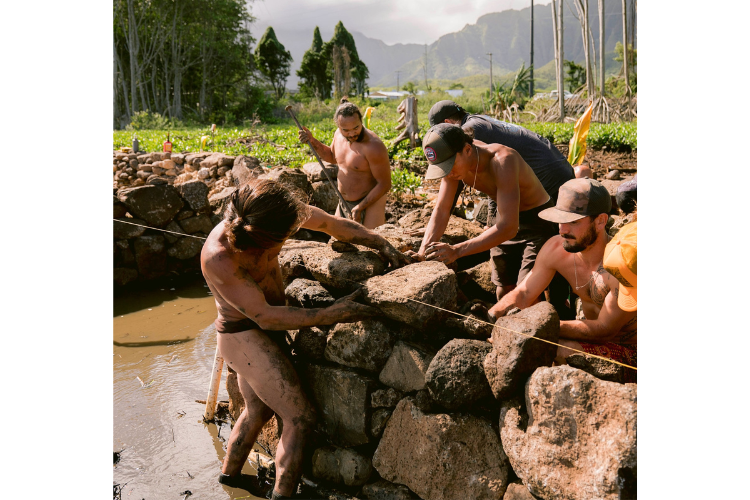By Samantha Lilly, Mad in America
"Caring with aloha" focuses on community support and lived experience to prevent suicide effectively and contrasts sharply with generic Western interventions.
A study in Medical Anthropology Quarterly explored the impact of a Native Hawaiian therapeutic practice known as "caring with aloha" on suicidality. The research suggested that this Indigenous approach, which prioritizes the community connections and lived experience of people contemplating suicide, may provide exceptional prevention rather than merely intervention.
Lauren Krishnamurti, Ph.D., the study author and now a research
health scientist at the U.S. Dept. of Veterans Affairs, argued that suicide prevention approaches in the U.S. primarily intervene rather than truly stopping suicidal thoughts and actions. In contrast, the Indigenous Hawaiian practice addresses suicide “through social support – promoting the value of life, offering hope or positive coping strategies (and) community building ...."
Over 10 months on the island of Oahu, Krishnamurti observed an alternative approach to suicide prevention that focused on interpersonal relationships. She learned that neighbors practice "vigilant watchfulness" over someone who has expressed suicidality.
While being mindful of the ways colonial perspectives may creep into her understanding of "aloha," Krishnamurti said neighbors listen to the "mo’oelo" or talking story of the suicidal person and hold space for lived experience. The leaders of the group she observed said this kind of community support aligns exactly with the needs of someone experiencing suicidal thoughts.
“Contrary to what might be expected,” Krishnamurti said, “research identifies the time immediately following rather
than preceding a failed or stopped suicide attempt – the days, weeks, even months (after) – as the greatest point of risk....”
Suicide is a complex public health issue. Research on individual prevention strategies is challenging because it's difficult to know when people experience suicidal ideation or make an attempt, but population-level trends show certain conditions increase the risk, such as discrimination and inequity.
In addition, common treatments and medications often prove ineffective. Involuntary hospitalization, while life-saving for some, has been linked to increased suicide risk. Common medications, like antidepressants, also have been linked to increased risk.
Meanwhile, international advocates have called for rights-based approaches guided by principles of inclusion, dignity and non-discrimination. They're challenging Western-centric psychology
and psychiatry and centering local and Indigenous healing practices.
However, it’s important to note that there are limitations and disadvantages to the "caring with aloha" approach. Krishnamurti pointed out that deeply investing oneself in another
person can be all-consuming and exhaust the bandwidth of a health care provider or neighbor.
She also cautioned assumptions about extracting and applying a culturally embedded practice to other environments. Non-Indigenous people should be very cautious in implementing it.
"It remains difficult to separate the legacy of colonial violence from the spirituality of aloha, even as it is practiced today by Indigenous groups,” she said.
Samantha Lilly is a "global mental health" researcher and critical suicidologist. Previously a Thomas J. Watson Fellow, Sam is currently pursuing their Masters of Public Health at the University of Michigan. They're also learning Brazilian Portuguese as a two-time recipient of a Foreign Language and Area Studies Fellowship.
Mad in America is a nonprofit catalyst for rethinking psychiatric care in the United States and abroad. The organization and its founder and publisher, Robert Whitaker, believe that the current drug-based paradigm of care has failed our society and those who've been diagnosed with a psychiatric disorder require profound change. Learn more in the Mad in America webzine and "Mad in America: Rethinking Mental Health" podcast.


